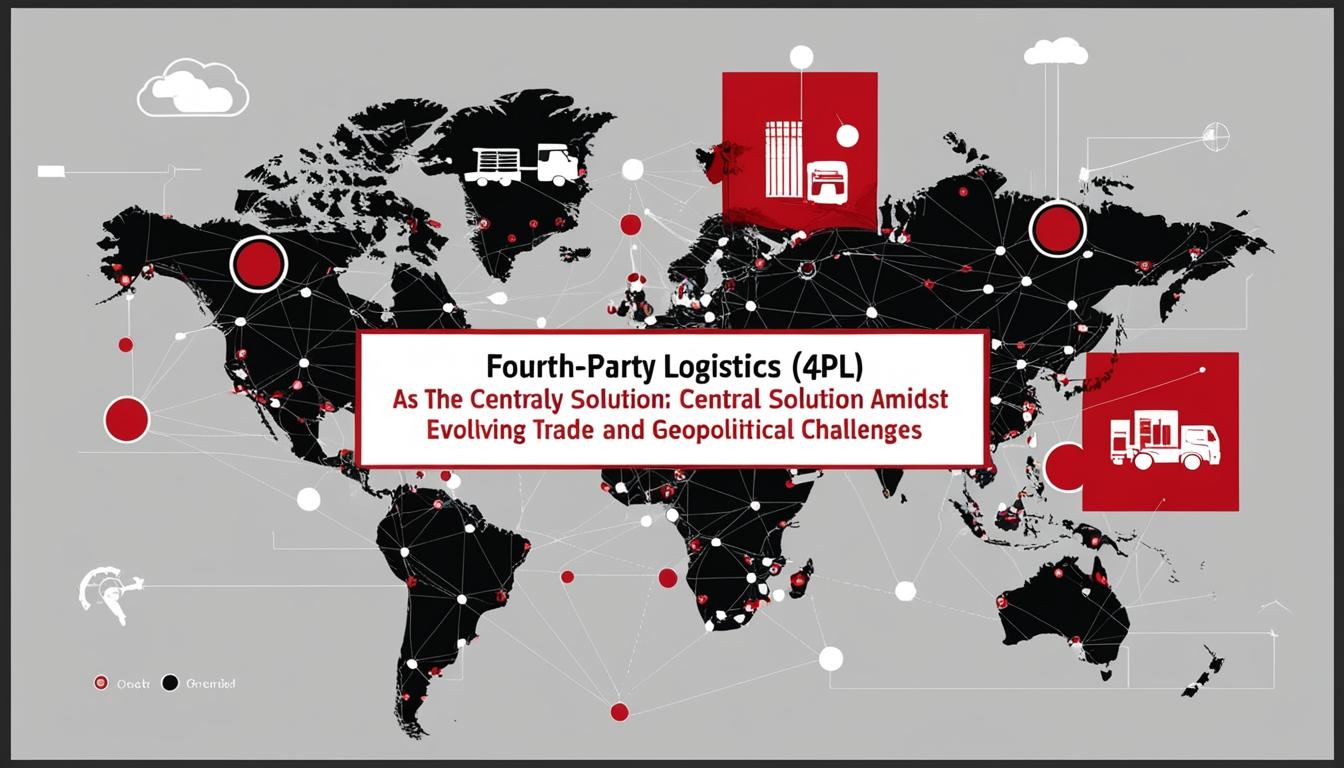As businesses grapple with the complexities of global supply chains, a notable shift towards fourth-party logistics providers (4PLs) is emerging as a solution amidst ongoing geopolitical disruptions and evolving trade policies. The logistics market is witnessing a significant transformation, with the 4PL sector experiencing a growth rate of 10% over the past two years, and projections indicating a compound annual growth rate of 8.39%, anticipated to reach a substantial $104.54 billion by 2030, as reported by Verified Market Reports.
In an interview with FreightWaves, David Gonzalez, vice president in the logistics, customer fulfilment, and network design team at Gartner, elaborated on the strategic advantages presented by 4PLs. He highlighted the increasing fluidity in global supply chain designs, stating, “There’s more disruption. There’s more fluidity in the design of global networks.” He attributed this shift to companies diversifying their production locations, which introduces complexity into freight flows and necessitates the flexibility that 4PLs offer.
The Gartner 2024 "Market Guide for Fourth-Party Logistics" underscores the role of 4PLs in managing and orchestrating comprehensive supply chain strategies, distinguishing them from third-party logistics providers (3PLs). Gonzalez explained that while 3PLs assist in executing logistics strategies, 4PLs are focused on the overall management of supply chains, including the orchestration of various logistics services through subcontractors and other organisations. He said, “The biggest difference is that a 4PL doesn’t necessarily have to execute the service themselves.”
Historically, the automotive industry has been a frontrunner in adopting 4PL services. Gonzalez noted that automotive companies have leveraged 4PL capabilities since their inception in the late 1960s to early 1970s. Other industries increasingly recognising the need for 4PL solutions include pharmaceuticals, energy, and consumer products, as businesses aim to streamline logistics in a challenging environment.
Despite the complex supply chains faced by retail companies, Gonzalez observed that there has not been a comparable growth in retail sector adoption of 4PLs. He suggested that retailers have built substantial logistics capabilities internally over time, thus reducing their need to outsource these services.
Among the major players in the 4PL market in 2024 are established logistics firms such as Maersk, DHL, Redwood Logistics, Bridgenet Solutions, C.H. Robinson, DSV, and Kuehne + Nagel. According to Gonzalez, these companies view 4PL as a value-added service for their customers, with infrastructure ownership serving as a key differentiator. He remarked, “You can imagine a firm like DHL can leverage their own infrastructure as much as they can manage other people’s infrastructure.”
The Gartner report recommends that 4PLs should maintain a neutral stance prioritising customer value over their own vested interests, such as existing networks or resources. Gonzalez added that shippers have various opinions on the level of neutrality required, suggesting that even if it is not a top priority, it is an essential consideration in the selection process for 4PL partners.
4PL contracts typically span multiple years, with costs running into millions of dollars. Gonzalez noted that, “I would say on average 4PL contracts would be probably pushing more towards five years than anything less,” indicating that long-term commitment is crucial for delivering the promised value. He advised businesses seeking partnerships with 4PLs to embrace a highly outsourced relationship, emphasising the importance of technological benefits. According to Gonzalez, a beneficial 4PL should enhance productivity, efficiency, and integration within the supply chain rather than merely substituting personnel.
In conclusion, as the landscape of global logistics continues to evolve, 4PLs are positioned as critical partners for companies navigating the intricacies of modern supply chains, reflecting broader trends in AI automation and logistics management within the business sector.
Source: Noah Wire Services
